Social Drama Master Asghar Farhadi: Everyone Has a Huge Treasure Chest in Them
In his 18-year career as a director, Iranian director Asghar Farhadi has never stayed out of the public eye. The award-winning director has also become a master worth his reputation in millions of fans. We are honored to invite the world-class headliner filmmaker to the 11th Beijing International Film Festival (BJIFF) to take a deep dive into the theme, "Secret and Answer: Foundation of Farhadi's Realism", sharing his experience and insight on creation. Farhadi opened the Masterclass with his early creative experience, talking about the profound influence of drama on his film creation and taking a long hard look at the shooting process of the pinnacle of social drama Nader and Simin, a Separation and the photography adventure in Europe. In addition, the director also mentioned his mostly recent work A Hero (2021) with positive comments, and sent warm blessings to Chinese films.
The guest moderator in this Masterclass session was film historian Wang Yao, who is a member of FIPRESCI and NETPAC and has long been engaged in film studies and serving as a curator and judge at film festivals and exhibitions, and among others.
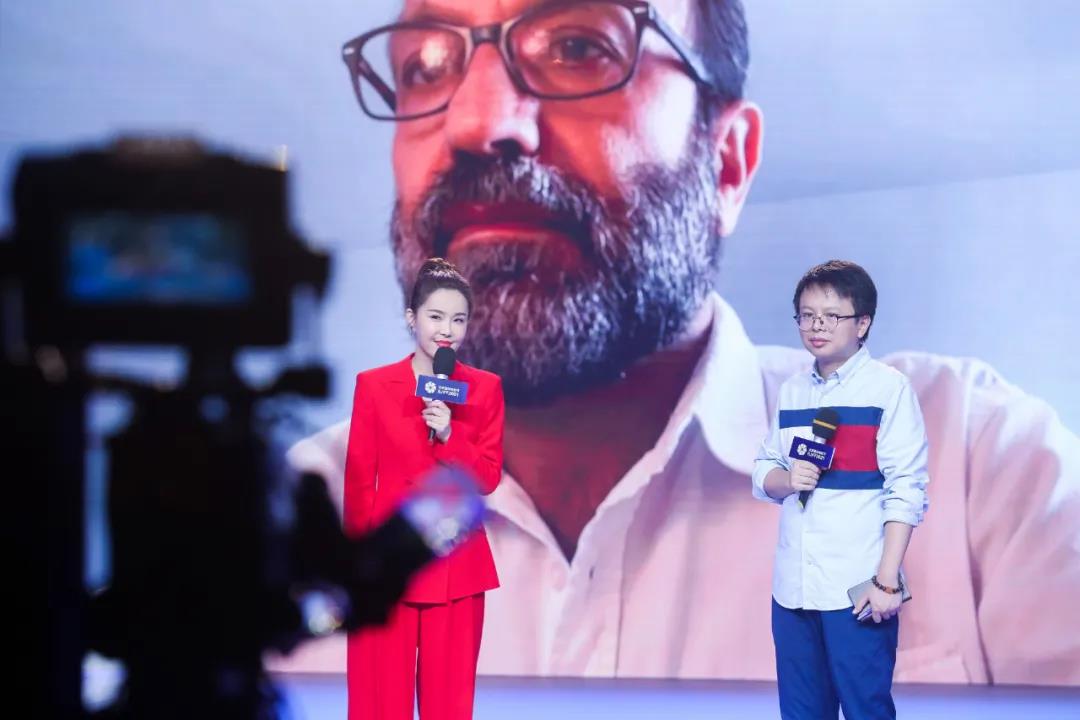
The Scene of the Asghar Farhadi Masterclass
Farhadi's Early Creative Experience
According to Farhadi, he developed a liking for the film at a young age, and his early childhood viewing experience also allowed the seeds of creation to be planted in his heart. "I watched a movie for the first time together with my uncle’s child in another city. When we got to the cinema from the suburbs of my city where I grew up, we missed the first half of that movie. I remember that the movie ought to be produced in Eastern Europe or the U.S. Unfortunately, when we arrived there, the first half had been shown so I had to continue halfway through the movie. However, I was quite satisfied with the rest of the movie from the midway to the end. After watching the movie, I praised it in front of others. Since I had not watched the first part, I kept thinking about what it should be like, and conceived and created it in my mind. I thought how I would shoot the first part if it were me."
Before working on filming, Farhadi studied drama. He said that the drama had a great impact on him, "It charted the course for me and was a determinant factor for my choice in the future." The subsequent work experience in TV station also brought him a very profound influence. "Working in TV station allowed me to think more about how to create stories that are favored by a broader audience and how to draw attention of ordinary audiences and be liked by them."
In the Masterclass, Asghar Farhadi reviewed the creative process of his debut feature film Dancing in the Dust. “I think there is something worthy of note as we create every story. While I create a script, I will consciously highlight the structure of different plots and different parts. For example, some parts need to be stiffened and some need to be overshadowed. What matters most is whether this story is credible," said he.
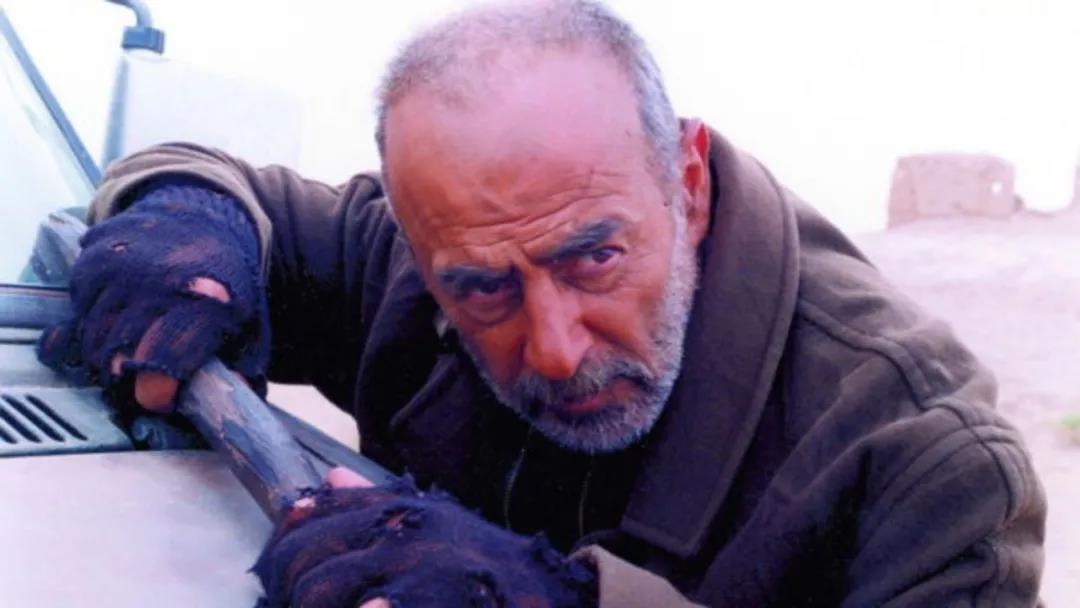
Stage Photo of Dancing in the Dust
Following Dancing in the Dust, Farhadi shot Fireworks Wednesday from a female perspective. As for the creation of female characters, Farhadi said that as he creates a character at the beginning, “I will not completely distinguish whether it is a female character or a male character. I don’t think there is anything that men can do but women can’t, and vice versa. For films like A Separation, About Elly and The Past, I basically based my character creations on this template: basically, change is pursued for my female characters, while steady state is ensured for my male characters on the whole. Perhaps this is the style of unconscious creation that I insist on."
The Whole Creation Story of A Separation, the Pinnacle of Social Drama
Talking about the film A Separation directed by Farhadi, Mr. Wang Yao, a faculty member of Beijing Film Academy, was deeply touched. He noted that over the past decade, social drama has had a substantial weigh in international film festivals, and director Farhadi is the pioneer and founder of this genre of film.
In this regard, Farhadi admitted that at the very start he never expected this film to be successful at international film festivals and enthrall a broader audience. The success of this film in turn gave him confidence, and made him aware that he should shoot films with more universal subject matters for a wider range of audience.
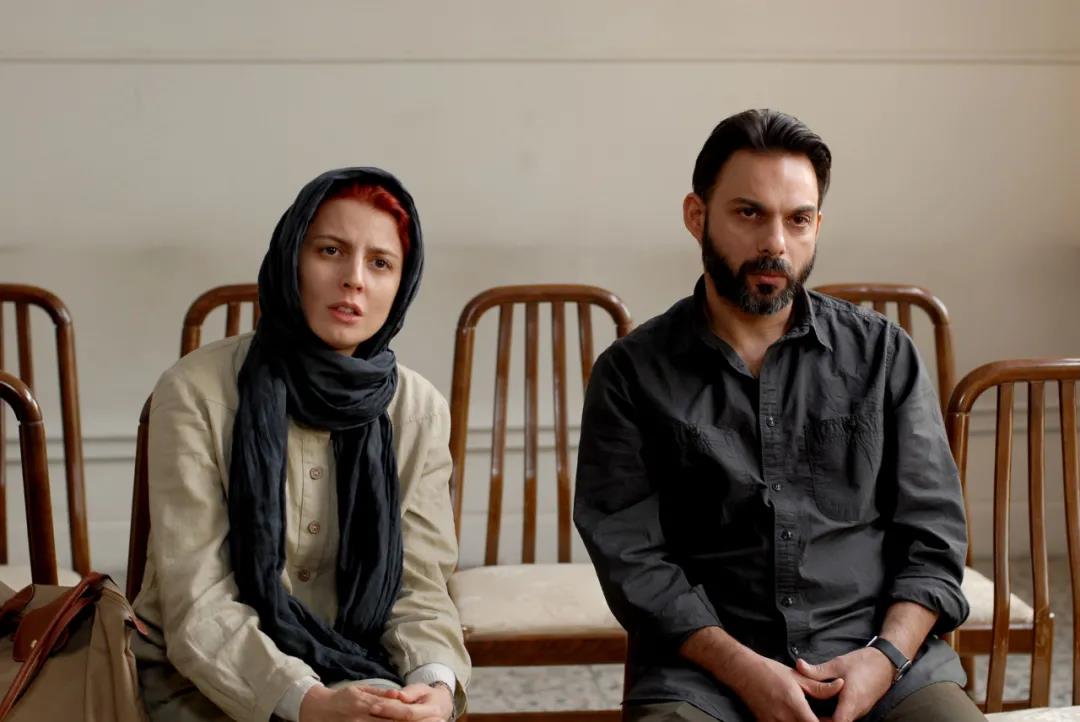
Stage Photo of A Separation
Regarding the subject matter of a film, Farhadi emphasized, “I like the subject matters and films that are concerned with daily life and reflect objective reality very much. Perhaps on the one hand, there are some episodes that contain very strong plots and please audiences a lot, but there is little connection with daily life. I have been working to find the fusion of the two – having a strong plot and at the same time reflecting objective reality." Farhadi further deepened the concept of "life" he understands. He believes that life is full of repetition and predictability, "but why should I persevere in extracting stories from daily life? Because I think there are many things in daily life that can be extracted, as well as a large number of contradictions. A trifle thing may lead up to a huge crisis, in the wake of which we will retrospect and ponder on what signs were there before it happened. Such details are actually very important.” And these details in life are also a reflection of the meaning of life itself.
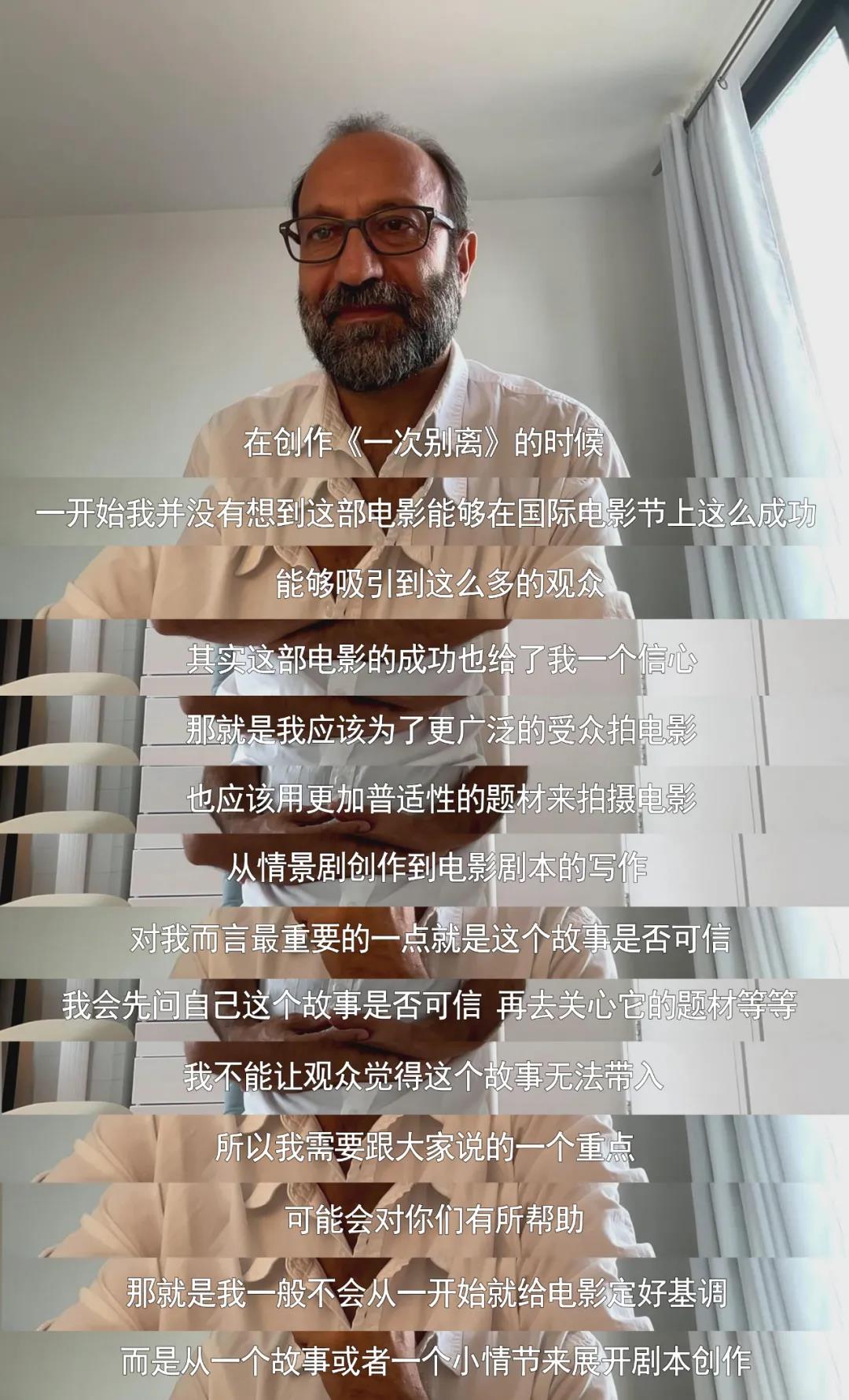
The dramatic art and Italian neorealism shown in A Separation has a profound impact on Farhadi
In Farhadi's films, social strata has always been a very important theme. For this, he said, “In all of the countries I have been to so far, I have seen struggles and conflicts between different classes, and I also found that it is quite hard for social strata to change, whether it is from a cultural perspective or economic perspective.” Farhadi believes that as he makes unconscious creations, he pays more attention to the middle class that he undoubtedly belongs to.
Farhadi also mentioned that the creation of A Separation demonstrates the far-reaching influence of dramatic art and Italian neorealism on him. For the former, Farhadi said, "Through (drama), I can discover the conflicts and happenstances in daily life." For the latter, he said that many Iranian films are well-known internationally, “Among them, I like Dariush Mehrjui’s second film The Cow very much. I am also deeply shaped by Italian directors’ films, and I like Vittorio De Sica and Federico Fellini alike very much. Of course, I have seen almost all the movies in the eras when the two directors lived."
Creative Experience in Europe
On the heels of A Separation, Farhadi began to go to France, Spain and other European countries for film creation, and have brought us world-renowned works such as The Past and Everybody Knows. Regarding his creative experience in Europe, Farhadi said, “This experience is more interesting to me. We can learn a lot about another culture during the process of making a film. This greatly broadens my horizons and enhances my worldview."
There are naturally many differences between filming in Iran and in Europe. However, Farhadi said he did not get cold feet because of this. On the one hand, he can more effectively experience the characteristics of filming in Iran. He believes that “When I’m filming in Iran, it is relatively easier to film and many ideas can get better implemented since I’m quite familiar with the environment, location and culture there. The maximum difference between filming in Iran and in foreign countries is that I can have a better control over my execution and creation in Iran, but it may be not that good to execute my unconscious creation in foreign countries because everything is vested and has been arranged in place and planned there."
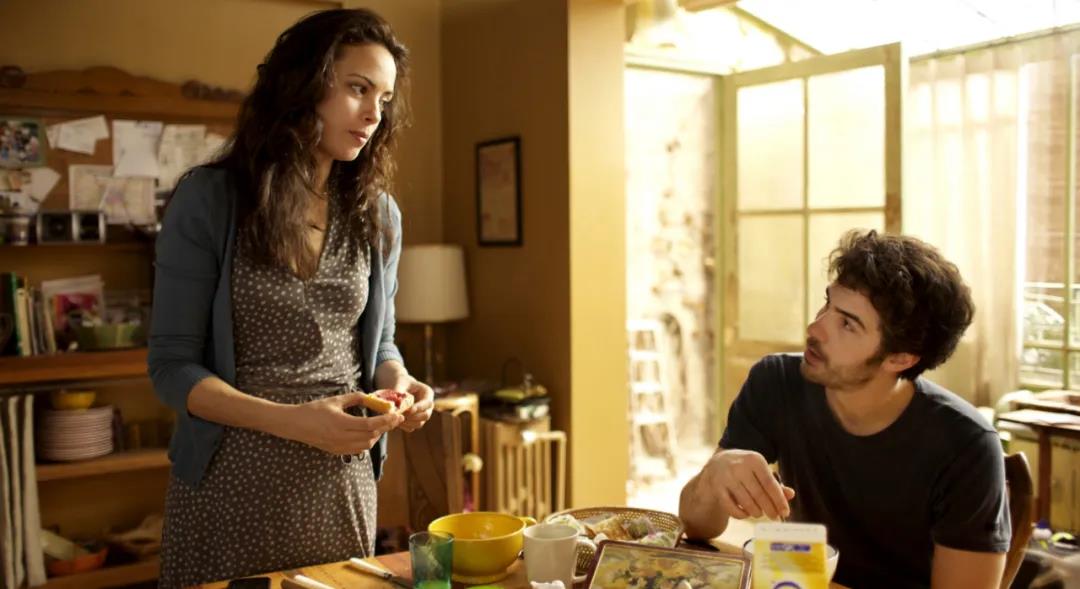
Stage Photo of The Past
In this journey, he also kept thinking about the similarities between the two places. "There are certainly more similarities than differences, be it in different places or people across the world, which is why I had the courage to film in other countries. When I am creating a script or filming a movie, there is actually only one audience – myself – in my mind. I will ask myself whether I believe in what is shown in the film if I watch it." As an internationally renowned director, Farhadi strongly believes that many films with global reach can all be considered as localized films, "As an old saying goes, of a nation, of the world! They all truly reflect the country in which the director lives and the environment he/she lives in. As I mentioned, I was deeply shaped by many legendary directors such as Vittorio De Sica and Federico Fellini, they are actually native. So localism and cosmopolitanism are not two opposite concepts."
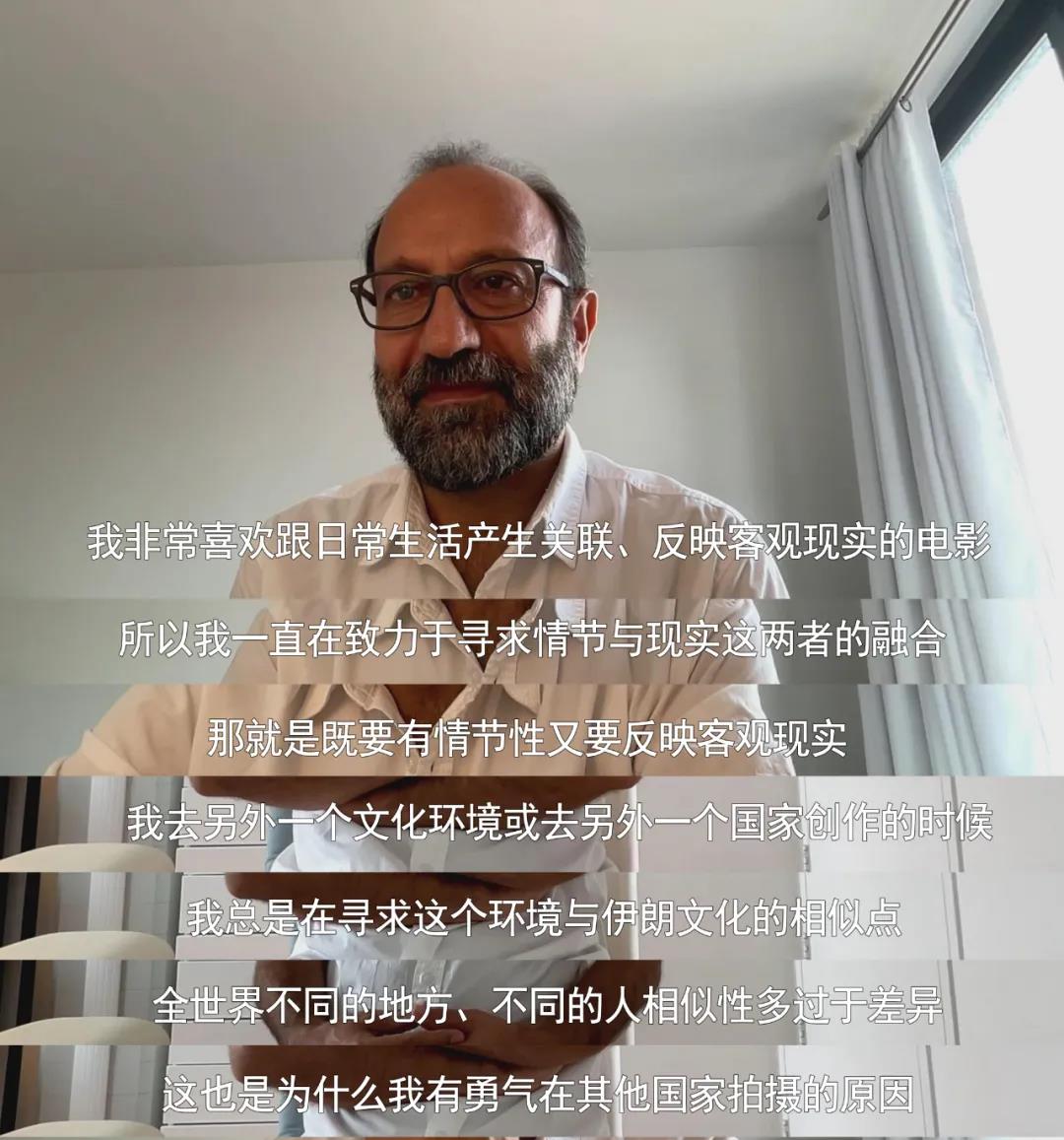
Farhadi emphasizes that “I really like the subject matters and films that are concerned with daily life and reflect objective reality very much.”
Whether in Iran or Europe, Farhadi continues to keep a watchful eye on the marital relations of contemporary people in his works, which often end up with breakdown. As for his preference, Farhadi said that he would rather than pay more attention to family relations than focusing more on marital relations. "In my opinion, family ties and the routine of the daily life in a family are all the sources of film production. Different roles will present more realistic character in the family environment and atmosphere. I also hope to be able to place myself in such a family situation to see them more real." To achieve this effect, Farhadi is committed to fully integrating professional and non-professional actors. "In fact, I spend a lot of time with the actors before filming, not to teach them how to be an actor, but to understand their acting potential and style. This process still needs to be planned in advance, not just to communicate with them. For example, ask them to gain a real experience and truly feel it in a social context."
About the New Work A Hero
This year, Farhadi's new directorial work A Hero also premiered in Europe and was widely acclaimed. For this film, Farhadi said, "This story is in keeping with the times, demonstrating the most modern, true and recent Iran, or the status quo of many other countries."
Among them, social media became an important clue to the film. Farhadi explained, "In my view, social media has become a part and parcel of our lives. Moreover, it has had a lot of positive effects in our lives, making us closer. Even though we may be far apart, we can communicate with each other. All in all, I think social media make a difference in social progress and increased understanding between people."
According to Farhadi, he spent a lot of time on casting during the film preparation. "As a matter of fact, this film is somewhat similar to a documentary. All the actors in this film are less famous, mainly dominated by theatrical performers. And many of them had never played a role in a film before, except a small number of actors. I think there was a good chemical reaction between them."
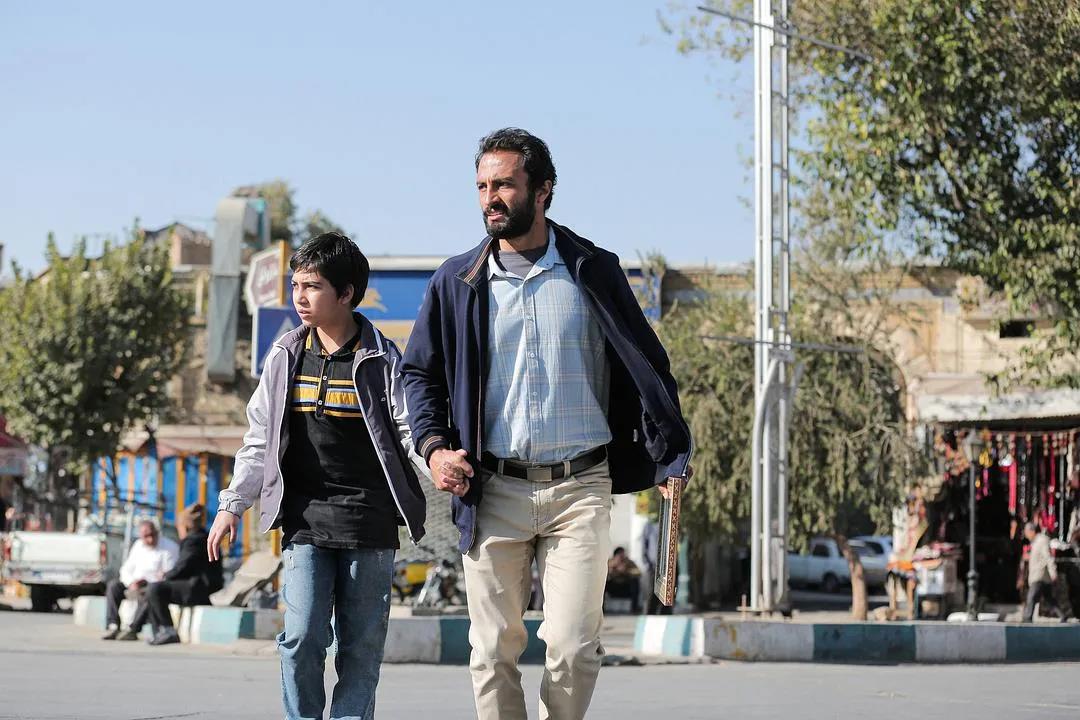
Stage Photo of A Hero
Regarding this film, Farhadi was vague about it, hoping that the audience can appreciate its charm on the big screen. Meanwhile, he also stated that A Hero continues to implement his "unconscious creation" concept. "I believe that everyone actually has a huge treasure chest in them, which contains all our experiences from adolescence to manhood. So when we create a script and film a movie, we will take out what we want from the treasure chest, which may be a short story or a short piece of music, and then start our creation. The important thing is that we have to understand and learn the art of film. We need many movies to find the key to the treasure chest as well as the path to it."
